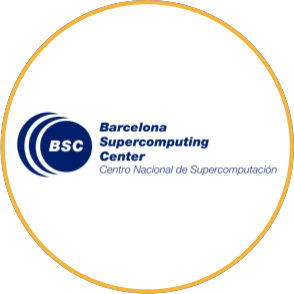
Scalability Post – Alya
Each week on the InSilico World and CompBioMed Slack Scalability channel one of our research group outlines the work that they have done to scale their codes. We are happy that 60 experts have already joined this channel and we would like more interaction and discussions taking place on the channel ...
UCL and Sheffield demystify HPC for Biomedical Researchers – winning praise at SC’20
More than 350 people attended the virtual presentation at Supercomputing 2020 featuring the work done in remote training in the QIIME2 application by consortia members, UCL and the University of Sheffield. This project, which took place over a 4-month period with a 6-week live course, introduced medical students into HPC ...
The Royal Society’s Interface Focus, CompBioMed Conference 2019 Themed Issue – Part II
We are delighted to announce that Computational Biomedicine. Part II: Organs and Systems of a two-part Theme Issue resulting from papers originally submitted to the CompBioMed Conference 2019 has now been published in The Royal Society’s “Interface Focus” journal, with articles available for all to read as open source. Part ...
PhD studentship in Virtual Human Cardiovascular Modelling & Simulation
UCL Chemistry Department is offering a fully funded studentship for three years to a highly motivated candidate to start in March 2021. The project will involve a collaboration with CBK Sci Con and is co-funded by them. The student will work on scientific applications of HemeLB, a flexible open source ...
VECMA and CompBioMed join forces to predict the impact of COVID
SARS-CoV2 has rapidly spread worldwide since December 2019, and early modelling work of this pandemic has assisted in identifying effective government interventions. The UK government relied in part on the CovidSim model developed by Professor Neil Ferguson’s team at the MRC Centre for Global Infectious Disease Analysis at Imperial College ...
CompBioMed at SC20
SC, the International Conference for High Performance Computing, Networking, Storage and Analysis, is one of the largest and most important conferences in computing. First established in 1988 by the Association for Computing Machinery and the IEEE Computer Society, it runs on an annual basis and attracts thousands of participants worldwide ...
The Royal Society Interface Focus, CompBioMed Conference 2019 Themed Issue
We are delighted to announce that part 1 of a two-part themed issue resulting from papers originally submitted to the CompBioMed Conference 2019 has now been published with many articles available for all to read as open source articles, The Royal Society Interface Focus. Part 2 of the themed issue, ...

The nUCLeus Hub: Scalable training in computational biomedicine
How can we provide sustainable and affordable HPC training to the next generation of life sciences graduates and future physicians during a global pandemic? This is the unforeseen question that instigated an ambitious collaboration between CompBioMed core partner University College London and associate partner Alces Flight at the start of ...
CompBioMed Associate Partners predicting the impact of closing your local shop on the spread of covid-19
Researchers from the Brunel University have developed a simulation tool that models the viral spread at the sub-national level, the “Flu And Corona virus Simulator” (FACS). FACS incorporates geospatial data from open sources to single building resolution within small predefined regions. Using FACS, the researchers have modelled the spread of ...
CompBioMed featured on Futuris programme of EuroNews
We’d like to announce that our work has been featured in the EuroNews programming within the Futuris section looking at the latest news about the leading scientific and technological research projects in Europe. Project Coordinator, Peter Coveney as well as Andrea Townsend-Nicholson were interviewed from UCL, and Dieter Kranzlmüller and ...
